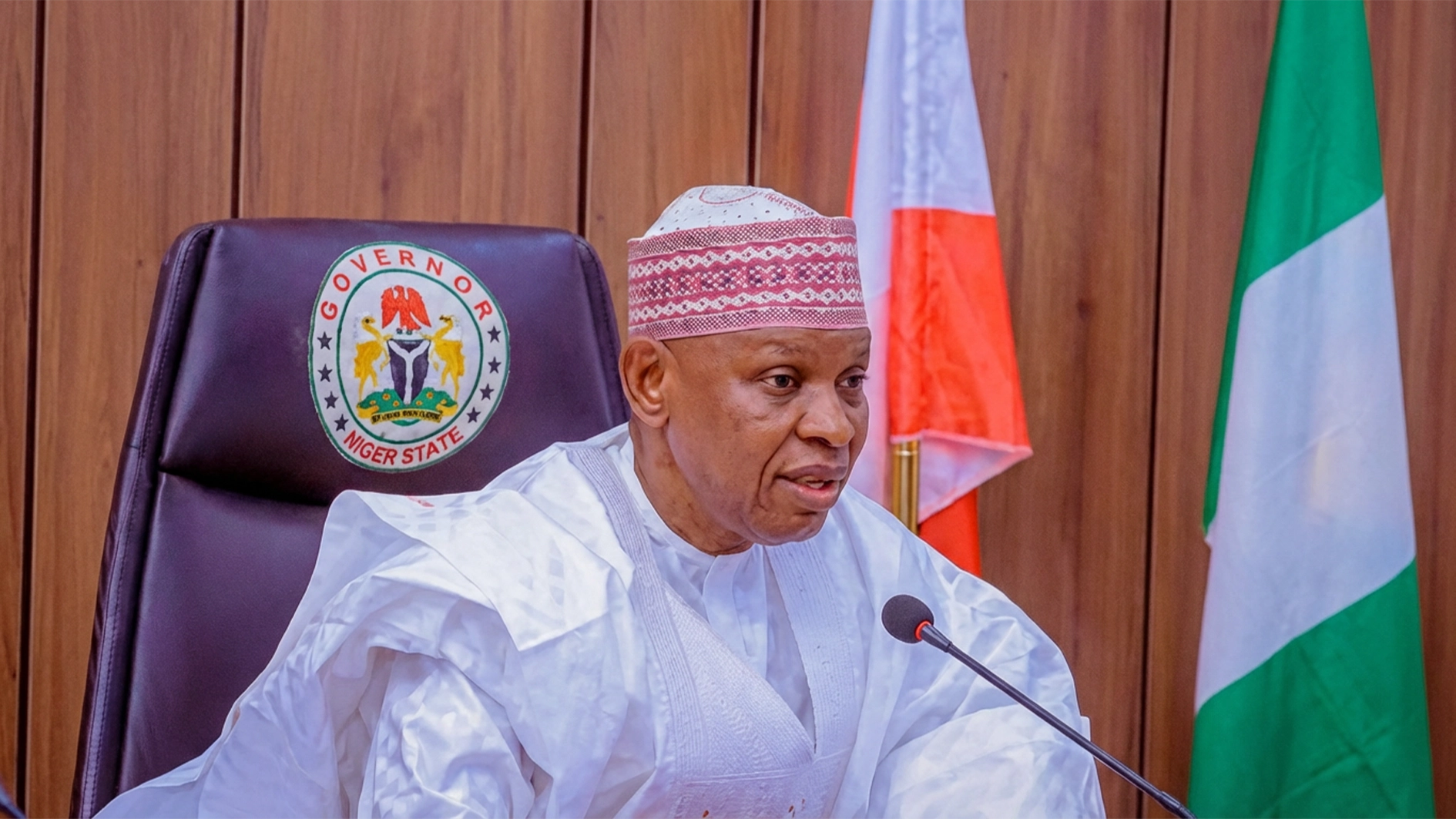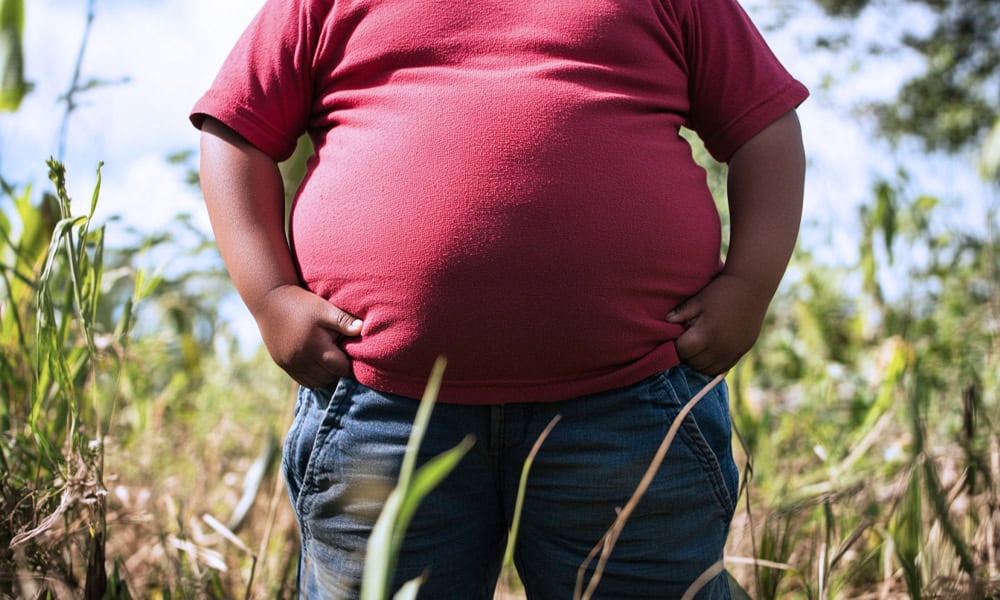
•Nigeria has 10,000 plant species but less than 20% have been utilised
•Herbal medicines effective as metformin for blood sugar control in type 2 diabetes
•Tinubu to launch NNMDA’s malaria, diabetes, BP, ED, arthritis drugs before July 2024
•Agency gets approval to run College of Natural Medicine, assembled world-class teachers
•NIPRD transferred market authorisation, technology of worldwide-accepted
herbal sickle cell drug, NIRISAN/NICOSAN to May & Baker as NICLOVIX
•Nigeria will have comprehensive electronic database of TMPs with their services/products in four years
Prof. Martins Emeje, is a pharmacist and Director General, Nigerian Natural Medicine Development Agency (NNMDA). Until his appointment as DG of NNMDA, Emeje was the pioneer Vice-Chancellor of the European University of Nigeria, Abuja. Emeje is also a distinguished professor of Drug Delivery and Nanomedicine at the National Institute for Pharmaceutical Research and Development (NIPRD) Abuja. Emeje in this interview with The Guardian talks about plans to commercialise herbal ‘cures’ for chronic diseases and boost foreign exchange earnings of the country through exports, among other things. CHUKWUMA MUANYA writes.
As one of the developers of Niprisan/Nicosan, how far with first the world-accepted herbal drug for sickle cell?
NIPRISAN is the flagship product of NIPRD, and I’m glad to be associated with it. In fact, I signed as the witness to the DGNIPRD during the license to May & Baker, and I was responsible for transferring the technology to the company. The product is now in the market as NICLOVIX; May & Baker has the market authorisation.
While one is proud of that drug, Nigeria has about 10,000 plant species and arable land of over two million hectares, yet less than 20 per cent of the plants have been utilised. Imagine how many indigenous medicines we can develop from this untapped plant biodiversity. In the next 12 months, we will be inviting the president to NNMDA to launch our malaria, diabetes, hypertension, erectile dysfunction, arthritis drugs. The time to end this inferiority complex has come.
Does NNMDA have any herbal drug for sickle cell?
Yes! We have five different products for the management of sickle cell. In fact within five weeks of assuming work here, I and my team engaged a couple of pharmaceutical companies on how best to commercialise our products. In fact, the Chief Executive Officer (CEO) of Evans Baroque visited us and was so impressed with the way my colleagues were working and he immediately donated a state-of-the-art sporting facility to encourage relaxation of my staff after the day’s work.
Natural medicine has been described as the future of medicine. As a pharmacist, what is your take on this?
I totally agree; first, medicine started with nature, it was man’s unwholesome attitude to nature that destroyed nature, and we went to chemical drugs. Be that as it may, over 20 per cent of drugs in our pharmacies are of natural origin, and today, the entire universe is going back to nature.
Historical African traditional knowledge, which undoubtedly has a strong ecological base, can make significant contributions to primary health care delivery and may be equivalent or even superior to imported knowledge on curing diseases as represented by conventional pharmaceuticals.
For example, some herbal medicines appear to be as effective as metformin for glycemic control in type 2 diabetes. Metformin, sold under the brand name Glucophage, among others, is the main first-line medication for the treatment of type 2 diabetes, particularly in people who are overweight. The traditional knowledge of phytotherapy is often held by older members of society and their relatives, farmers, or people with a relationship to the countryside.
A big error we make today, which I call 21st-century colonialism is to continue to insist that, we must use orthodox approaches to validate traditional knowledge; it is the reason our strategies to attain universal health care in Africa is a failure. We must use innovative approach, which must be adapted to local challenges, and must involve all stakeholders: agriculturists, environmental activists, medical and health researchers, practitioners, regulators, policymakers, religious and traditional leaders.
Documenting ancestral knowledge of traditions, combined with modern evidence on safety and effectiveness, can be introduced into the curricula of school to enable the continent to achieve the third vision of the Declaration of Astana (enabling and health-conducive environments in which individuals and communities are empowered and engaged in maintaining and enhancing their health and well-being).
If we do this, not only schools, but all citizens, especially the poor, would benefit from better knowledge of traditional medicines; this, I am committed to doing at NNMDA before my tenure ends. Fortunately, I have approval to run a college of natural medicine, and I have already assembled world-class teachers in this area.
World-renowned foreign scientists in this area such as Profs. Atmaram Pawar, Ranjan Dutta, Joseph Fortunak, Chris Okonji, Jude Nwokike, Ayo Egieyeh, Ulrich Feiter have all pledged to support my team and I because of the goodwill I enjoy from them. They know that, I have zero tolerance to shoddiness or things have been done under cover because of selfish interests, so they are excited to support me at no cost to the nation to ensure that Nigeria is not left behind as natural medicine takes center stage globally in the quest for national medicine security by countries.
It is believed that herbal medicine is worth over $100 billion yearly. What is the worth in Nigeria? What can it add to the country’s Gross Domestic Product (GDP)?
See, the global herbal medicine market size is estimated to be worth USD356 billion by 2030. Nigeria has about 10,000 plant species and arable land of over two million hectares, yet less than 20 per cent of the plants have been utilized. Let’s get it clearer; this is just herbal medicine; my agency is not an herbal medicine agency.
We are responsible for everything that is not artificial or chemically synthesised in Nigeria. Let me give you an idea of what I’m talking about, so that you imagine what it can contribute to our GDP, and why I said earlier that, it will replace oil if we get serious with research in this area.
According to the World Health Organisqation (WHO), about 80-85 per cent of people in developing countries depend on traditional medicines, in order words, about 170 million Nigerians use traditional medicines. Is that not more than the number of people using GSM? Take your mind back to the profit declared by the GSM providers last year and tell yourself what we are missing from developing or investing in our traditional medicine.
It’s a shame! Right now, we do not have the data on how much herbal medicine can add to the GDP in precision terms, in fact, until we deliberately prioritize Research and Development (R&D) in herbal/traditional medicine, we will continue to beg for drug aides and we will continue to expose ourselves to the danger of consuming drugs produced by people we don’t know.
That is we will remain vulnerable, because, the day any country decides that, they don’t want these Nigerians on the surface of the earth again, sorry for us. Watch us these four years and see the data we shall generate.
NNMDA has made giant strides in the past in developing herbal cures. Why are the products not yet making waves in the market?
You see, the problem with us that, most us are slaves, but we don’t know. We are even raising our shoulders thinking we are educated, or knowledgeable. You needed to see how people who claimed to have gone to school talk down on traditional medicines, and I’m talking about people who drank ‘agbo’ when they were growing up in the village; but today, because they are professors or doctors or pharmacists, they wear tie and talk about drugs they know how to make or have never seen the machine being used to produce them, as if it is made from their backyard.
Remember how we did welcome party for COVID-19 vaccine here at the airport? That was a vaccine the owners told us they were not going to take responsibility for any problem that came from using it. But, we know how to badmouth the traditional medical practitioners in our villages; I’m just angry. Just watch what I will do in the next four years.
On why our products not yet making waves in the market
The absence of institutional Intellectual Property Right (IPR) regime, lack of patronage by the manufacturing industry/entrepreneurs, low import tariff on imported herbal products, and of course, lack of political will on the part of government to prioritise research, as well as lack of support by the private sector, including philanthropists and the penchant for imported products are all responsible. Watch me as I demystify these things!
As the new DG what are you going to do differently to lift natural medicine? What is your blueprint?
You know everything I’m going to do will be different. I’m either allowed to do it, because, I applied for this job, met the academic criteria advertised, wrote the online exam set by the ministry and the president approved the recommendation of the different committees without me knowing anybody, including the ministers, in order to deploy my practical skills and intellect acquired across over 100 countries to solution finding or I go back to my lab.
Like you asked, the recruitment committee asked us during the online exam to say what we will do differently (our blueprint) if appointed as the DG and mine is reproduced below:
Forge strong collaboration between the academia and the industry
Develop a strong intellectual property regime
Pilot the agency’s training institution away from paper to practical qualifications
Undertake clinical trial of indigenous medicines
Institutionalise grantsmanship in order to reduce or totally remove the burden of funding from the government
Establish a Drug Manufacturing Company registered with the Corporate Affairs Commission (CAC)
Establish the first public Herbal Pharmacy in Nigeria
Connect with the chemical, food and pharmaceutical industries
Organise business summits with the industries, entrepreneurs, Traditional Medicine Practitioners (TMPs), universities, colleges of education, polytechnics, hospitals, NGOs
Create NNMDA Fellows
What are the challenges?
I believe you are expecting me to say funding, right? Unfortunately, I do not belong to those group of scientists that see funding as the challenge; yes, the allocated funds are never enough, but that’s not peculiar to Nigeria. Our own problem is the administration of the little funds available. It is fraught with dubious attitudes, and until we free ourselves from the notoriously freaky method of allocating resources, we will continue to have agencies underperforming.
My agency is the only research institution with the national mandate of conducting research and developing indigenous medicines. We are expected to go round the entire 774 Local Government Areas (LGAs) to cultivate, preserve, conserve, research, develop, document, collate, produce and promote everything indigenous, whether plants, animals, or minerals. To do this, in 2023, we were allocated about N300 million, but my problem is not even the money, but the fact that, this money 25– 30 per cent of it goes to companies who have no business with research, but because the law says that, research is a capital project, it goes to people as contract; who does that? How can we grow like that?
Where do you want NNMDA to be in the next four years?
I want to see NNMDA become a household name in Nigeria, and an international center of excellence in indigenous medicines research and development, where the world will refer to when it comes to the science and art of not only teaching natural medicines but producing our own medicines; this is the only solution to medicine security in Nigeria.
My ambition is to see NNMDA become a centre for practical/functional human capital development, and I’m not talking about paper qualifications here. To this end, and in less than four years as DG, I have received overwhelming support and pledges from global citizens- Africans, Europeans, Americans, Asians, Nigerians in diaspora and Nigerians at home as well as organisations and the academia in response to their trust and believe in my uncommon approach to national development.
Many of these people have offered to teach pro bono, join us for research pro bono, while some big pharma companies have already visited us, and made donations in kind and offered to support our research infrastructure, develop value chains, and encourage interest in the application of technology to a range of areas – new diagnostics, vaccines and therapeutics, improved medicinal, aromatic and pesticidal plants and livestock, cleaner and more efficient activities.
Pro bono publico, usually shortened to pro bono, is a Latin phrase for professional work undertaken voluntarily and without payment.
In the next four years, I want to see an agency able to amalgamate experience, expertise and competitive advantages to create a world-class system of innovation; it will begin to operate in more productive, responsive and relevant ways as to meet the needs of Nigerians, and Africans. NNMDA will become Nigeria’s “new oil” making a positive impact on the nation’s economy.
In the next fours, Nigeria will have a comprehensive electronic database of TMPs with their services/products. The shame of lack of documentation of traditional medical knowledge, leading to the dearth of information will vanish. Every part of this country, that is all the 774 local governments in Nigeria will experience our activities in the next four years, because, the solution to our health problems lie within the local communities where those ailments also exist.
We will establish functional research centers using the local people with knowledge of the plants, animals and minerals within their communities to make our own medicines. Any primary health that is not built around our traditional medicines is simply a continuation of colonialism and meant to continually make us beggars.
I rather go back to my lab than head an agency that will sign unto 21st-century colonialism by deliberately or otherwise accepting that Africans are inferior to their due to the exploitative strategies that favoured the colonizers, even though today, some of us are worse than our colonizers. For example, many of us who claim to be educated but who want favours from the colonizer to the detriment of our country, look at issues from the colonizer’s perspective and promote their viewpoints. Over time, our people started believing that their knowledge base – which was superior, to begin with – was also inferior.
Finally, before I end my tenure at NNMDA, we will not request government funding for our activities again; if single individuals are producing medicines and making profit, why should I with a huge government agency not be able to do better? But government too must be ready to give us free hands, allow us to innovate, explore and express our skill and stop the unnecessary harassment in the name of oversights/supervision; not all of us are thieves; some of us are proud Africans/Nigerians, there is nothing you can use to entice us into modern slavery.






